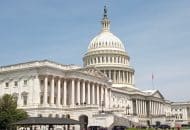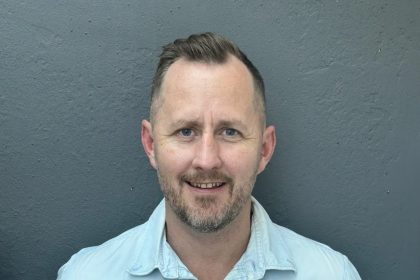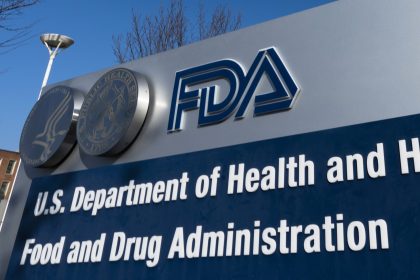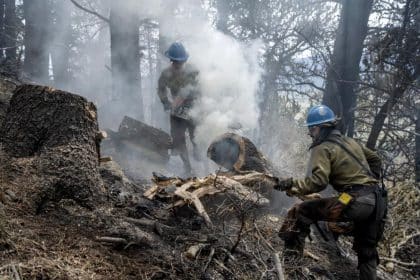Reauthorizing the Older Americans Act Benefits All Americans
COMMENTARY
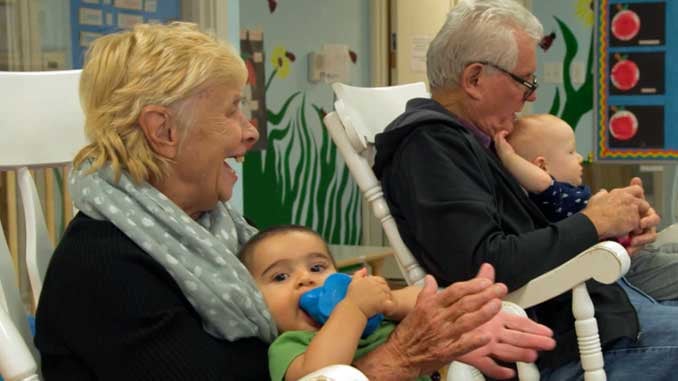
As Congress focuses on division, policymakers risk losing sight of where we have common ground — supporting the needs of children, families and older adults. However, there is bipartisan support for fixes we can easily implement now, including a reauthorization of the Older Americans Act.
The Older Americans Act strengthens families by providing care and engagement opportunities for those aging in America.
Its authorization expires this September, and advocates are hard at work to shore up the bipartisan support it has benefited from since first enacted in 1965. Despite being an election year where it seems every piece of legislation is bogged down by which party it would benefit, a strong OAA could be a rare win-win effort for policymakers and the American people.
The OAA supports crucial services like home-delivered and congregate meals, support for grandparents and other family caregivers, preventive health services, elder abuse prevention and more.
In early February, the Administration for Community Living released a final rule to update the regulations for implementing its OAA programs, but without renewed authorization, these promising changes may falter.
Right now, states are leading the way with creative efforts that not only serve older adults but also whole communities through intergenerational programs.
In Nebraska, for instance, LB 1178 would establish an Intergenerational Care Facility Incentive Grant Program, which would help create on-site child care services at assisted living communities and nursing homes. We at Generations United and The Eisner Foundation know how impactful these intergenerational shared sites can be as they give purpose to the older adults while fostering empathy in young children.
But Nebraska is also making this move because of the growing caregiving workforce challenges it faces. When serving these two high-need populations in the same place at the same time, engaging child care and eldercare professionals is more efficient.
Co-located care sites also report higher staff retention rates than traditional segregated care, resulting in long-term cost savings.
Americans in every state deserve to benefit from solutions like these. Reauthorizing the OAA would support critical programs that help older adults age in place (which they overwhelmingly prefer to do) and authorizes a grant program for multigenerational collaboration and intergenerational programming, encouraging new innovation.
The intergenerational sites and programs made possible by the OAA maximize our tax dollars by serving not only older adults, but entire communities.
It’s what our country needs.
We’ve long seen growing rates of loneliness and isolation among all age groups, and a new report also shows a sharp drop in America’s place on the World Happiness country rankings.
In May 2023, the U.S. Surgeon Gen. Dr. Vivek Murthy released a Surgeon General Advisory calling attention to the public health crisis of loneliness, isolation and lack of connection in our country. The physical health consequences of poor or insufficient connection include a 29% increased risk of heart disease, a 32% increased risk of stroke, a 50% increased risk of developing dementia for older adults and an increased risk of premature death by more than 60%, comparable to smoking daily.
These risks have been a concern for the older population for some time, but the growing rates of loneliness and dropping rates of happiness among young people are equally alarming. In the United States today, young people feel more stressed and less satisfied with their lives, and report lower levels of happiness than older people, the opposite of other areas of the world.
We have an obligation to address this crisis not only for the current older generations, but also for future generations as the effects of loneliness and isolation threaten to spiral across our society.
A reauthorization of the OAA that includes the recommended actions of the surgeon general in his National Strategy to Advance Social Connection can tangibly reduce these risks for all ages.
One pillar of the plan is to cultivate a culture of connection. Connection to people and to community is key to promoting a sense of belonging. In our work, we see how this sense of belonging can be cultivated through frequent, positive, intergenerational interactions that often result in deep friendships and reduced signs of loneliness, isolation and depression.
When older adults have the support to remain active in their communities, everyone benefits. Their life experience is invaluable to their families, local organizations and local government. Engaged older adults are happier, and happier older adults are healthier — a crucial advantage as health care costs continue to skyrocket. The intergenerational provisions of the OAA make this possible.
Intergenerational connections not only reduce social isolation but also form bonds that encourage communities to rely more on each other and less on external services. Older adults who know their neighbors are more likely to receive a meal, a ride or simply a friendly visit when they need it. And in turn, they may watch a young child while a parent runs an errand.
Deeper community connections allow older adults to remain in their homes longer and reduce the need for institutional support, giving OAA-supported programs the ability to reach more people in need.
But to capitalize on innovative solutions like these, Congress should immediately take steps to secure the reauthorization of the Older Americans Act at a truly sustainable level of funding, to give Americans of all ages the resources and opportunities they need to thrive, which is exactly what government does at its best.
Donna Butts is the executive director of Generations United, a Washington, D.C.-based nonprofit organization advocating for intergenerational programs and public policies. She can be reached on X.
Trent Stamp is the CEO of The Eisner Foundation, the only U.S.-based funder focused exclusively on supporting intergenerational solutions to society’s challenges. He can be reached on X.










